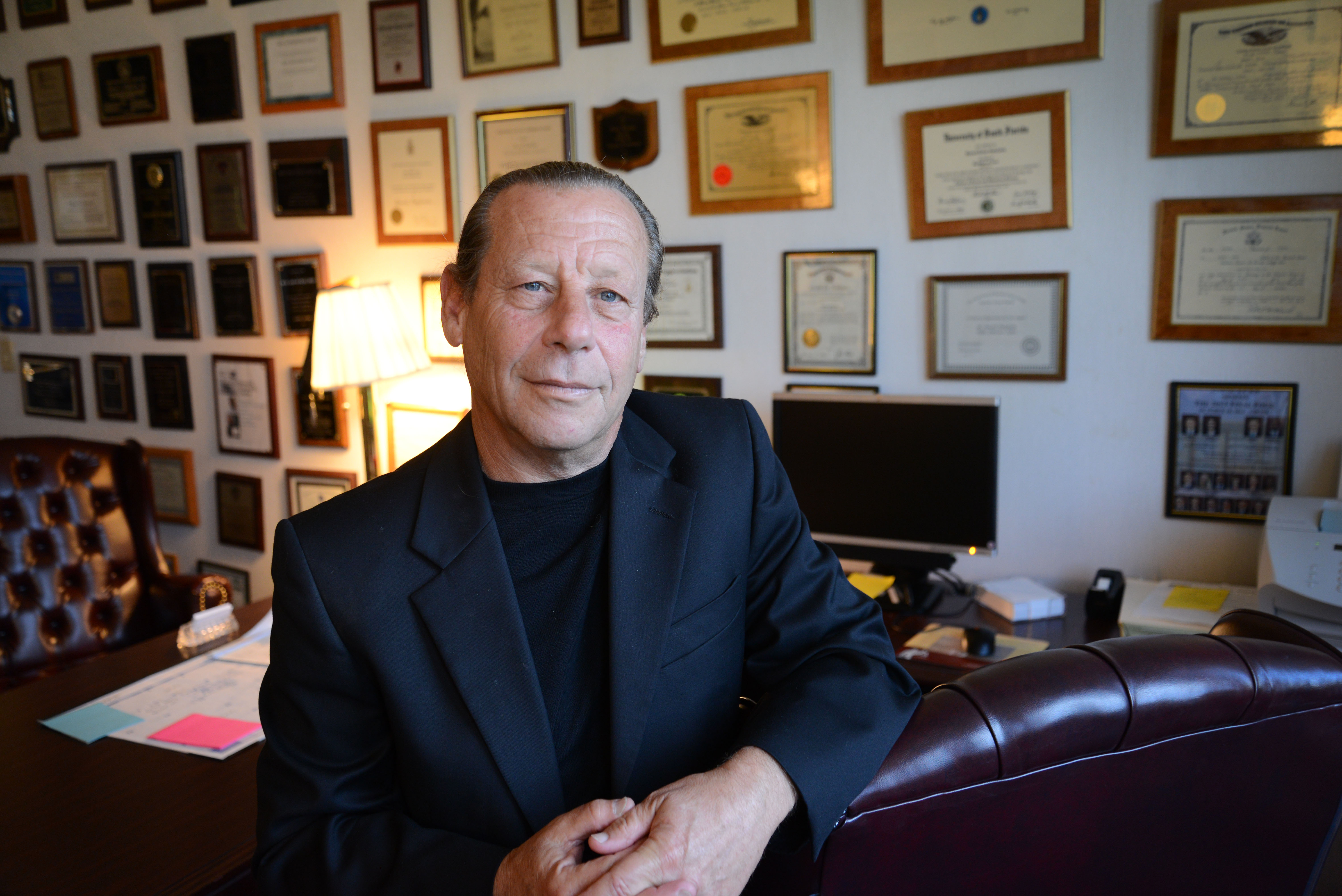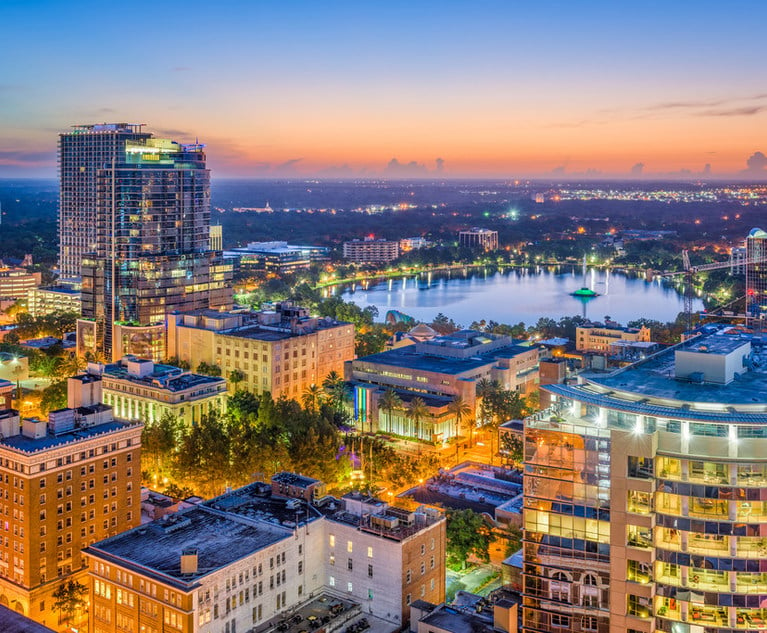South Florida Attorneys Pivot to Stem Coronavirus Spread
South Florida courts and attorneys are exercising caution.
March 10, 2020 at 03:25 PM
3 minute read
 Howard Finkelstein,Broward Public Defender
Howard Finkelstein,Broward Public Defender
In more than 20 years practicing law, Andrea Cox, a partner with Saul Ewing Arnstein & Lehr in Miami, has not taken a deposition by video conference absent a court order.
But that's about to change — a sign that attorneys are adjusting to growing concern about the virus.
For Cox it might mean working at a disadvantage.
"It is harder to take a deposition if you are not in front of the witness," she said.
For starters, video makes it is difficult to read the witness, a skill Cox has honed over the course of her career.
But these and other changes are coming for litigators, with the quickening spread of COVID-19, which has infected over 800 people in the United States and resulted in at least 27 deaths, according to a New York Times aggregation of official federal, state and local tallies. Among those deaths, two have been reported in Florida, where Gov. Ron DeSantis declared a state of emergency.
The virus is affecting the schedules of litigators across the country. And organizers are canceling industry meetings and conferences, due to travel restrictions grounded upon fears of spreading the new virus among attendees. This includes the Spring Meeting 2020 of the American Bar Association Business Law Section, which was canceled on Monday.
Courts are also taking action. The U.S. District Court for the Southern District of Florida, for instance, took steps in response to the spread of the virus. It announced visitor restrictions to all courthouses from people who traveled to Italy, Iran, South Korea and China within the last 14 days. Its notice also denies entry to anyone who had come into close contact with people who had returned from the countries in the previous two weeks.
The impact can be tough on litigators. Adding to the confusion: There is no clear guideline or consistency among policies dealing with the coronavirus across federal and state courts.
Broward Public defender Howard Finkelstein finds it frustrating that there is no clear guidance from the local court system. But he said that could change if the virus begins to appear in jail or prison inmates. The ripple effect would spill into other areas of law when inmate populations come into contact with guards, public defenders, judges and other people in the court system.
Finkelstein worries that in such a scenario, concerns for public safety would likely mandate that prisoners remain quarantined—a requirement that might violate the constitutional rights of some.
But for Finkelstein, some of the real impact is happening right now. For example, his scheduled event Wednesday to speak with around 700 students and the public has been canceled.
The Student Awareness Day program by Miami Dade Public Schools at Florida International University focuses on anti-bullying and also has Holocaust survivors tell their compelling stories to the attendees. The cancellation, announced in an email to board members, acknowledged that it is the "elderly that are most vulnerable."
"What makes it really sad is there are only a few more years left of the program because the survivors are almost gone," Finkelstein said. "Canceling is the right thing, but it is a sad thing."
This content has been archived. It is available through our partners, LexisNexis® and Bloomberg Law.
To view this content, please continue to their sites.
Not a Lexis Subscriber?
Subscribe Now
Not a Bloomberg Law Subscriber?
Subscribe Now
NOT FOR REPRINT
© 2025 ALM Global, LLC, All Rights Reserved. Request academic re-use from www.copyright.com. All other uses, submit a request to [email protected]. For more information visit Asset & Logo Licensing.
You Might Like
View All
Attorneys, Health Care Officials Face Nearly $80M RICO Suit Over Allegedly Fabricated Spreadsheet


Amid Growing Litigation Volume, Don't Expect UnitedHealthcare to Change Its Stripes After CEO's Killing
6 minute read
Freeman Mathis & Gary Taps Orlando for Third New Florida Office This Year
3 minute readLaw Firms Mentioned
Trending Stories
- 1'Didn't Notice Patient Wasn't Breathing': $13.7M Verdict Against Anesthesiologists
- 2'Astronomical' Interest Rates: $1B Settlement to Resolve Allegations of 'Predatory' Lending Cancels $534M in Small-Business Debts
- 3Senator Plans to Reintroduce Bill to Split 9th Circuit
- 4Law Firms Converge to Defend HIPAA Regulation
- 5Judge Denies Retrial Bid by Ex-U.S. Sen. Menendez Over Evidentiary Error
Who Got The Work
J. Brugh Lower of Gibbons has entered an appearance for industrial equipment supplier Devco Corporation in a pending trademark infringement lawsuit. The suit, accusing the defendant of selling knock-off Graco products, was filed Dec. 18 in New Jersey District Court by Rivkin Radler on behalf of Graco Inc. and Graco Minnesota. The case, assigned to U.S. District Judge Zahid N. Quraishi, is 3:24-cv-11294, Graco Inc. et al v. Devco Corporation.
Who Got The Work
Rebecca Maller-Stein and Kent A. Yalowitz of Arnold & Porter Kaye Scholer have entered their appearances for Hanaco Venture Capital and its executives, Lior Prosor and David Frankel, in a pending securities lawsuit. The action, filed on Dec. 24 in New York Southern District Court by Zell, Aron & Co. on behalf of Goldeneye Advisors, accuses the defendants of negligently and fraudulently managing the plaintiff's $1 million investment. The case, assigned to U.S. District Judge Vernon S. Broderick, is 1:24-cv-09918, Goldeneye Advisors, LLC v. Hanaco Venture Capital, Ltd. et al.
Who Got The Work
Attorneys from A&O Shearman has stepped in as defense counsel for Toronto-Dominion Bank and other defendants in a pending securities class action. The suit, filed Dec. 11 in New York Southern District Court by Bleichmar Fonti & Auld, accuses the defendants of concealing the bank's 'pervasive' deficiencies in regards to its compliance with the Bank Secrecy Act and the quality of its anti-money laundering controls. The case, assigned to U.S. District Judge Arun Subramanian, is 1:24-cv-09445, Gonzalez v. The Toronto-Dominion Bank et al.
Who Got The Work
Crown Castle International, a Pennsylvania company providing shared communications infrastructure, has turned to Luke D. Wolf of Gordon Rees Scully Mansukhani to fend off a pending breach-of-contract lawsuit. The court action, filed Nov. 25 in Michigan Eastern District Court by Hooper Hathaway PC on behalf of The Town Residences LLC, accuses Crown Castle of failing to transfer approximately $30,000 in utility payments from T-Mobile in breach of a roof-top lease and assignment agreement. The case, assigned to U.S. District Judge Susan K. Declercq, is 2:24-cv-13131, The Town Residences LLC v. T-Mobile US, Inc. et al.
Who Got The Work
Wilfred P. Coronato and Daniel M. Schwartz of McCarter & English have stepped in as defense counsel to Electrolux Home Products Inc. in a pending product liability lawsuit. The court action, filed Nov. 26 in New York Eastern District Court by Poulos Lopiccolo PC and Nagel Rice LLP on behalf of David Stern, alleges that the defendant's refrigerators’ drawers and shelving repeatedly break and fall apart within months after purchase. The case, assigned to U.S. District Judge Joan M. Azrack, is 2:24-cv-08204, Stern v. Electrolux Home Products, Inc.
Featured Firms
Law Offices of Gary Martin Hays & Associates, P.C.
(470) 294-1674
Law Offices of Mark E. Salomone
(857) 444-6468
Smith & Hassler
(713) 739-1250






